 It's been an entire year since the First Amendment suffered a gigantic blow as a result of the 2012 Scott Walker recall campaign in Wisconsin, though it's one that very few Americans above and beyond astute BRAD BLOG readers, even know about. And now, there is another threat to Free Speech, stemming from that same recall of GOP Presidential hopeful Walker looming at the Wisconsin State Supreme Court.
It's been an entire year since the First Amendment suffered a gigantic blow as a result of the 2012 Scott Walker recall campaign in Wisconsin, though it's one that very few Americans above and beyond astute BRAD BLOG readers, even know about. And now, there is another threat to Free Speech, stemming from that same recall of GOP Presidential hopeful Walker looming at the Wisconsin State Supreme Court.
Walker's attorneys are now arguing at the Wisconsin State Supreme Court that it is a violation of the First Amendment rights to even investigate whether the Walker campaign broke state law by the controversial candidate personally soliciting funds from non-profit, tax-exempt 501(c)(4) groups so donors to his campaign could remain secret. In a separate gambit, they also tried to make that case to the United States Supreme Court, which early Monday sent the case back to Wisconsin.
And it now appears that Right Wing Radio talkers --- at the core of a very real First Amendment blow suffered one year ago --- are, once again, in the thick of all of it.
This is all related to what Media Action Center (MAC) members discovered during the 2012 recall campaign when talk hosts on Wisconsin radio giants WTMJ and WISN gave hundreds of hours of free airtime for GOP luminaries like Republican National Committee Chair Reince Priebus and Wisconsin GOP Vice Chair Brian Schimming in order to promote and recruit volunteers for Walker during that contentious campaign....
'Free' speech?
Supporters of Walker's opponent, Democrat Tom Barrett, contacted the two stations asking for comparable time under a long-established FCC rule called the "Zapple Doctrine," and were denied their request. It was one year ago when the Federal Communications Commission (FCC)'s Media Bureau, in response to complaints filed by MAC, publicly decided that Zapple is no longer in effect, making it perfectly legal for radio stations to provide millions of dollars in free airtime over our public airwaves for political operatives to promote and even recruit volunteers for their candidates' campaigns, without allowing supporters of opposing party's candidates on the air at all.
In doing so, the FCC cited the First Amendment rights of the radio stations to promote whomever they wish (even though the opponents' supporters equally own the airwaves, but aren't allowed access to the microphones.)
MAC (of which I am the founder,) could have appealed the stunning FCC decision, but with the public interest attorneys tied up with issues related to the FCC's Net Neutrality ruling, there was no one available to assist. Plus, we always knew that the original Zapple Doctrine was a hybrid of the Fairness Doctrine rule and Section 315a of the statutory Communications Act, which guarantees equal time for political candidates. We knew the FCC could go one of two ways with its decision: the agency could endorse comparable time for candidates' supporters under Section 315a of the federal law, or it could take the easy way out and say the Zapple Doctrine was thrown out along with the Fairness Doctrine --- a set of rules formerly used by the FCC to help interpret and enforce the Communications Act.
No surprise, the agency took the easy way out and declared that when the Fairness Doctrine was killed (at the request of Ronald Reagan in the 1980s), so was the Zapple Doctrine along with it.
Still, we had to file the Complaint to make the point that giving hundreds of minutes of free air time to just one political party, the equivalent of hundreds of thousands of dollars of in-kind contributions to that party's candidate --- over our publicly-owned airwaves --- is not the way it should be. Sometimes you have to firmly establish something is wrong before you can make it right.
It didn't take long for the Right Wing spin machine to turn the ruling on its head to claim a giant victory for the First Amendment. Just one week after the FCC decision, Republican FCC Commissioner Ajit Pai (well known for his partisan political antics) wrote a piece for the Right Wing website RedState.com, entirely mischaracterizing MAC's case while waving the flag of First Amendment "free speech". His Orwellian summation:
Unfortunately, that sort of up is down argument has now become all-too-typical GOP rhetoric. Deny your political opponents free speech on the airwaves we ALL own, then call it a victory for the First Amendment.
Republicans silencing opponents while claiming violation of First Amendment free speech rights is becoming a familiar meme, one that, once again, leads directly back to the Scott Walker recall campaign --- and to Right Wing talk radio.
Criminal investigations
There have been two investigations into illegal activity by Presidential hopeful Scott Walker's campaigns for Governor. The first of the two so-called "John Doe" investigations by state prosecutors netted six convictions of his top aides. That probe also revealed that the Walker campaign had directly coordinated with WTMJ talker Charlie Sykes, one of five right wing hosts spotlighted in the MAC case.
The second John Doe investigation is looking into illegal collaboration between Walker's campaign and various dark money groups, including Americans for Prosperity and The Wisconsin Club for Growth (WiCFG), during the recall. That probe focuses on political tactics that, among other things, allowed Wisconsin billionaire John Menard, Jr. to secretly donate $1.5 million to WiCFG, which then allegedly funneled it into Walker's recall campaign, followed by giant business awards from Walker gubernatorial administration. As investigative reporter Michael Isikoff wrote for Yahoo News in March:
Key to the effort, the email indicated, was secrecy. "Stress that donations to WiCFG [Wisconsin Club for Growth] are not disclosed and can accept corporate donations without limits," reads one June 20, 2011, email from a Walker aide to the governor prior to one of his out-of-state fundraising trips. "Let them know you can accept corporate contributions and it is not reported."
Such tactics are illegal in Wisconsin, but Walker attorneys have been battling the state investigation in federal courts, arguing --- what else? --- that the fundraising groups' First Amendment rights are being violated by the investigation. Writes Isikoff:
Which brings me back to talk radio. "John Doe 2" revealed that, at the same time MAC was requesting comparable air time for Walker's opponent during the recall, WTMJ's Charlie Sykes wasn't just exercising his Freedom of Speech, but may well have been directly coordinating with the Walker campaign. And not just Sykes, but radio talker and Fox "News" host Sean Hannity as well.
According to Marie Rohde at WisPolitics.com last year:
Why, exactly, Sykes and Hannity were to be subpoenaed, we do not yet know. The Wisconsin Supreme Court has itself been acting in secretive ways, not even allowing oral arguments to be heard in the case, as Lisa Kaiser of Milwaukee's Shepard Express' reports. Hopefully, when the Court makes its decision, we'll find out.
Unless, of course, making public information available to the public somehow violates the First Amendment.
Sue Wilson is a media activist, director of Public Interest Pictures' Broadcast Blues, and a 22 year veteran of broadcast journalism. Her numerous awards include Emmy, AP, RTNDA, and PRNDI for work at CBS, PBS, FOX, and NPR. She is the editor of the media criticism blog, Sue Wilson Reports and founder of the Media Action Center.


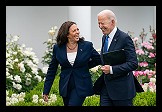 BIDEN DROPS REELECTION BID
BIDEN DROPS REELECTION BID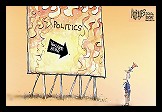 Sunday 'You Are Here' Toons
Sunday 'You Are Here' Toons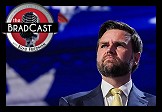 What J.D. Vance Forgot to Tell You (and Lied About) at the RNC: 'BradCast' 7/18/24
What J.D. Vance Forgot to Tell You (and Lied About) at the RNC: 'BradCast' 7/18/24 'Green News Report' 7/18/24
'Green News Report' 7/18/24
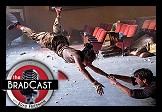 Holding on for Dear Life Amid the Political Whirlwind: 'BradCast' 7/17/24
Holding on for Dear Life Amid the Political Whirlwind: 'BradCast' 7/17/24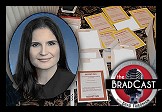 Cannon's Corruption: 'BradCast' 7/16/24
Cannon's Corruption: 'BradCast' 7/16/24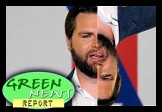 'Green News Report' 7/16/24
'Green News Report' 7/16/24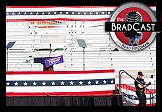 Amid the Assassination Attempt Aftermath:
Amid the Assassination Attempt Aftermath: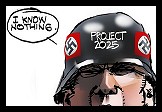
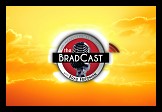 Meanwhile... : 'BradCast' 7/11/24
Meanwhile... : 'BradCast' 7/11/24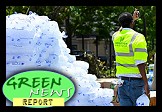 'Green News Report' 7/11/24
'Green News Report' 7/11/24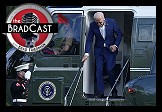 Paging 'Johnny Unbeatable'! Dems (Actually!) in Disarray!: 'BradCast' 7/10/24
Paging 'Johnny Unbeatable'! Dems (Actually!) in Disarray!: 'BradCast' 7/10/24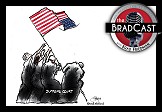 SCOTUS Immunity Ruling 'As Bad as it Sounds', And Worse: 'BradCast' 7/9/24
SCOTUS Immunity Ruling 'As Bad as it Sounds', And Worse: 'BradCast' 7/9/24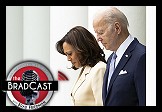 So, What Now?: 'BradCast' 7/8/24
So, What Now?: 'BradCast' 7/8/24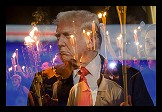 Debunking MAGA Cult Xenophobia
Debunking MAGA Cult Xenophobia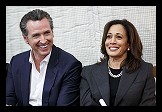 A Friendly Suggestion: Harris-Newsom 2024
A Friendly Suggestion: Harris-Newsom 2024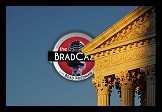 Prosecutor: SCOTUS Corruption Ruling Less Corrupt Than Appears: 'BradCast' 6/27/24
Prosecutor: SCOTUS Corruption Ruling Less Corrupt Than Appears: 'BradCast' 6/27/24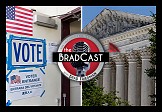 Good News and Bad: At the Polls and From the Corrupted Court: 'BradCast' 6/26/24
Good News and Bad: At the Polls and From the Corrupted Court: 'BradCast' 6/26/24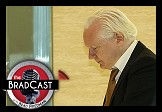 'Emptywheel' on Assange Hacking, Plea Deal: 'BradCast' 6/25/24
'Emptywheel' on Assange Hacking, Plea Deal: 'BradCast' 6/25/24
 VA GOP VOTER REG FRAUDSTER OFF HOOK
VA GOP VOTER REG FRAUDSTER OFF HOOK Criminal GOP Voter Registration Fraud Probe Expanding in VA
Criminal GOP Voter Registration Fraud Probe Expanding in VA DOJ PROBE SOUGHT AFTER VA ARREST
DOJ PROBE SOUGHT AFTER VA ARREST Arrest in VA: GOP Voter Reg Scandal Widens
Arrest in VA: GOP Voter Reg Scandal Widens ALL TOGETHER: ROVE, SPROUL, KOCHS, RNC
ALL TOGETHER: ROVE, SPROUL, KOCHS, RNC LATimes: RNC's 'Fired' Sproul Working for Repubs in 'as Many as 30 States'
LATimes: RNC's 'Fired' Sproul Working for Repubs in 'as Many as 30 States' 'Fired' Sproul Group 'Cloned', Still Working for Republicans in At Least 10 States
'Fired' Sproul Group 'Cloned', Still Working for Republicans in At Least 10 States FINALLY: FOX ON GOP REG FRAUD SCANDAL
FINALLY: FOX ON GOP REG FRAUD SCANDAL COLORADO FOLLOWS FLORIDA WITH GOP CRIMINAL INVESTIGATION
COLORADO FOLLOWS FLORIDA WITH GOP CRIMINAL INVESTIGATION CRIMINAL PROBE LAUNCHED INTO GOP VOTER REGISTRATION FRAUD SCANDAL IN FL
CRIMINAL PROBE LAUNCHED INTO GOP VOTER REGISTRATION FRAUD SCANDAL IN FL Brad Breaks PA Photo ID & GOP Registration Fraud Scandal News on Hartmann TV
Brad Breaks PA Photo ID & GOP Registration Fraud Scandal News on Hartmann TV  CAUGHT ON TAPE: COORDINATED NATIONWIDE GOP VOTER REG SCAM
CAUGHT ON TAPE: COORDINATED NATIONWIDE GOP VOTER REG SCAM CRIMINAL ELECTION FRAUD COMPLAINT FILED AGAINST GOP 'FRAUD' FIRM
CRIMINAL ELECTION FRAUD COMPLAINT FILED AGAINST GOP 'FRAUD' FIRM RICK SCOTT GETS ROLLED IN GOP REGISTRATION FRAUD SCANDAL
RICK SCOTT GETS ROLLED IN GOP REGISTRATION FRAUD SCANDAL VIDEO: Brad Breaks GOP Reg Fraud Scandal on Hartmann TV
VIDEO: Brad Breaks GOP Reg Fraud Scandal on Hartmann TV RNC FIRES NATIONAL VOTER REGISTRATION FIRM FOR FRAUD
RNC FIRES NATIONAL VOTER REGISTRATION FIRM FOR FRAUD EXCLUSIVE: Intvw w/ FL Official Who First Discovered GOP Reg Fraud
EXCLUSIVE: Intvw w/ FL Official Who First Discovered GOP Reg Fraud GOP REGISTRATION FRAUD FOUND IN FL
GOP REGISTRATION FRAUD FOUND IN FL


































